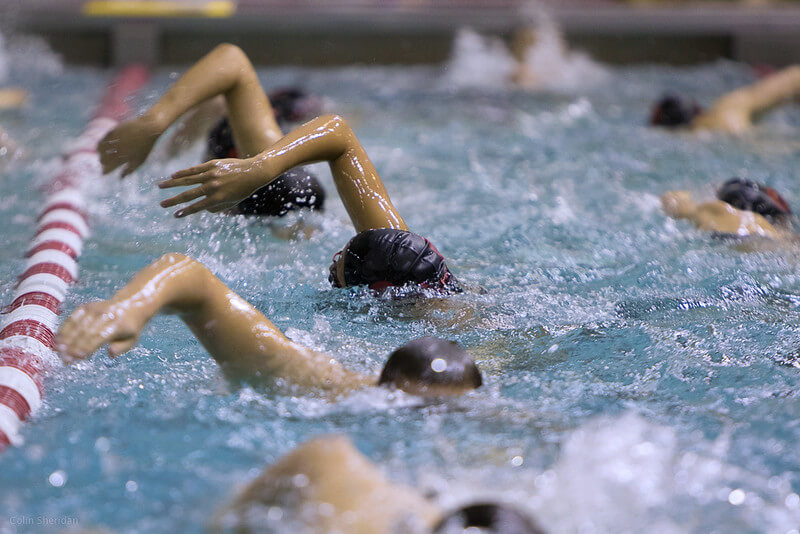How to Balance the Transition to the Fall Season
By this point in the year, high schools have begun their fall semesters. The summer heat begins to dwindle, classes pick up and swimming kicks off its next season. Although it’s a transition many swimmers have experienced for years, it can still present challenges. Summer is prime time for training: long hours in the pool, extra time in the gym and virtually no distractions outside of swimming.
The fall season brings a new balancing act with classes, extracurriculars and the competition schedule. So, how do you manage the shift while keeping up in both academics and the sport? Here are a few ways:
Manage Your Priorities
One of the most difficult parts of this transition is knowing what comes first and what can wait. For many athletes, high school years are spent preparing for college and recruiting, which means staying on top of academics and getting involved with activities such as honor societies, school clubs or volunteering. There will inevitably be times when you have to choose what is more important. That might mean studying for a major test instead of going to a Friday night football game, or getting a full night of sleep instead of showing up to an early morning practice. Recognizing those moments early and prioritizing will help you throughout the season.
Manage Your Time
Along with setting priorities, it’s possible to manage your time so you can handle the commitments on your plate. The small things, like completing assignments before practice, can make a big difference in the long run. Using outside tools to manage time, such as Google Calendar or a physical planner, can also help you out in this area. With such busy schedules, it’s smart to take advantage of the opportunity and learn how to manage your time as smartly and efficiently as possible.
Take Care of Yourself
It’s easy to burn out when you’re juggling school, swimming and everything else. Taking care of yourself mentally and physically should not only be a priority, but the priority. That includes eating well, getting enough sleep and making time for things outside of sports or academics. A healthy, well-rested swimmer will perform better in practice, in competition and in the classroom. Small habits, such as stretching before bed, staying hydrated and unplugging from screens, can and will make a major difference in overall energy throughout the year.
Stay Flexible
With packed schedules comes the need for flexibility. Some weeks will be harder than others, and some days will bring workloads that force you to shift focus. Learning to adapt without feeling like you’ve failed will help in the long run. Flexibility doesn’t mean slacking off. It just means being realistic about your time and energy. The athletes who adapt best are often the ones who are able to sustain success across the season, because they avoid burnout and know how to bounce back quickly from setbacks.
Focus on Progress, Not Just Results
During the early months of the season and semester, it’s easy to feel discouraged when results don’t show immediately. Training is rarely linear, and improvement takes time. By focusing on steady progress instead of only outcomes, you can reduce stress and find motivation in small wins. Celebrating that helps keep morale high even when big goals still feel far away.
Conclusion
At the end of the day, this transition isn’t about being perfect. It’s about finding a rhythm that works for you, giving yourself space to adapt and staying motivated through both school and swimming. The lessons you learn in managing time, setting priorities and taking care of yourself will extend beyond high school, shaping how you face challenges in college, in your career and in life outside the pool.
